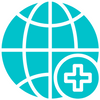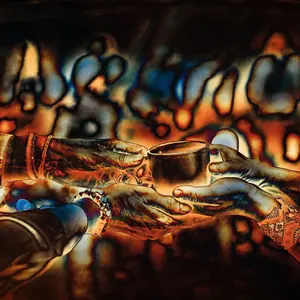

Traditional World Medicine

Traditional World Medicine
Western vs. Chinese Medicine
What is traditional Chinese medicine (TCM)? And how does it compare to Western medicine? Is one better than the other?
TCM is all about creating balance in the body to maintain health and wellness. This balance comes through unrestricted movement of qi (pronounced “chi”), which is the energy that travels through the body in order to give life to each cell, and it is said to travel through the body via pathways called meridians.
The following are some TCM practices employed by Chinese medicine practitioners.
Acupuncture
Acupuncture, or the insertion of thin, sterile, disposable metal needles into the skin, can relieve symptoms of disease and pain and restore balance to the body.
Acupuncture is gaining popularity in the U.S., and is covered by many insurance plans to treat conditions ranging from arthritis and muscle plan to mind and mood issues (e.g., stress, anxiety, depression, OCD) and infertility.
Acupuncturists may also perform other TCM practices including:
- Ear seeds— tiny metallic balls which are affixed onto acupressure points on the ears
- Gua sha—a tool-assisted type of massage that scrapes or rubs part of the body to improve circulation, reduce inflammation, and encourage healing
- Moxibustion—the practice of heating dried, ground mugwort atop needles or along certain points on the skin to increase the flow of energy
Cupping
Chinese medicine teaches the adage: “Where there’s stagnation, there will be pain. Remove the stagnation, and you remove the pain.”
Cupping is the practice of small plastic or glass cups which create a suction effect against the skin and break open tiny blood vessels beneath the surface. The body’s healing response replenishes blood to the cupped areas, which helps unblock qi and restore the flow of energy throughout the body.
Cupping is popular with athletes and can help with issues ranging from back, neck, knee, and shoulder pain to asthma and high blood pressure.
Herbal Medicine
Chinese herbs in the form of capsules, liquid tinctures, or formulas can target various health issues such as allergies, digestion issues, menopause, and cancer treatment side effects.
Qigong
Qigong uses simple poses, meditation, and rhythmic breathing patterns to reduce stagnation in the body. Benefits of this mind-body practice include:
- Reduced depression
- Improved energy
- Immune system boost
- Improved well-being in cancer patients
Tai Chi
Tai chi is a form of martial arts-based exercise for all ages that includes slow movements and deep breathing techniques.
Tai chi is designed to energize and balance your qi through a body that is outwardly moving and a mind that is still. Studies show that tai chi can relieve fibromyalgia pain, reduce depression, and improve memory.
While Western medicine shines when it comes to crisis intervention and disease management (e.g., emergency surgeries, blood transfusions, trauma care, life-saving pharmaceuticals, etc.), TCM emphasizes prevention, and can help bolster the body’s healing potential. TCM practices also rarely have side effects, compared with the potential side effects of many Western interventions.
TCM isn’t a substitute for conventional medicine, but can be a great complement to it. When you combine Western and Chinese medicine, you can cultivate balance, wellness, and vitality while harnessing the powerful technology and resources Western medicine offers if an intervention is needed. You can leverage the best of both worlds by using Western technology to help diagnose health conditions and Chinese medicine to establish long-term treatment plans.
REFERENCES
Cleveland Clinic. (2022, June 3). What is traditional Chinese medicine? https://health.clevelandclinic.org/chinese-medicine
Holden Qigong. (2022, April 27). Western vs. Chinese medicine: which is better? https://www.holdenqigong.com/western-vs-chinese-medicine


 By
By







